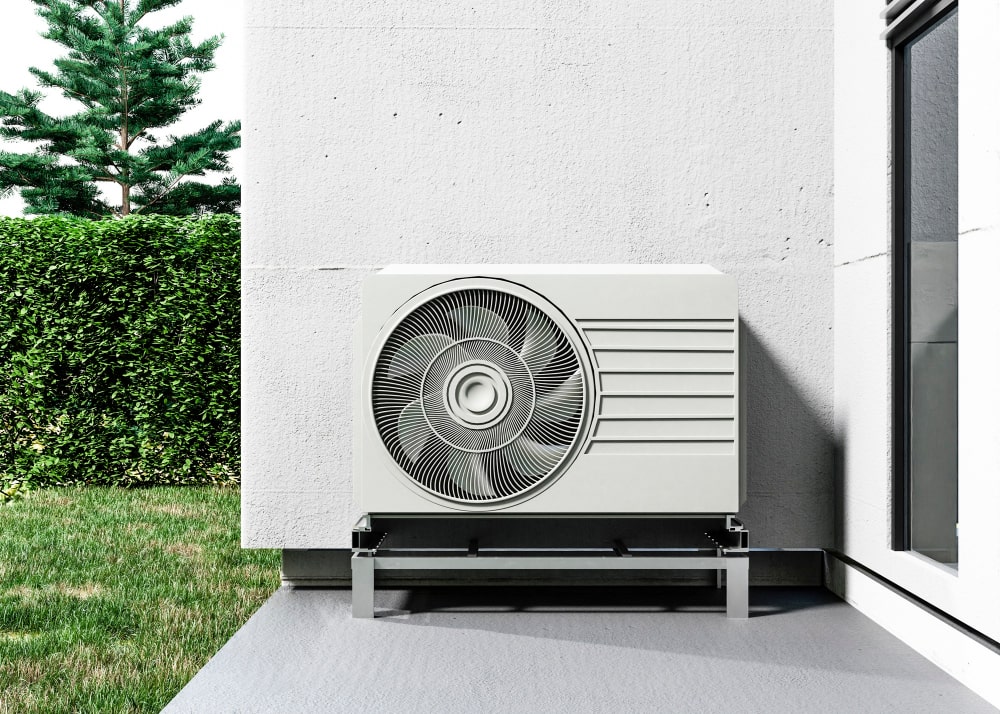
The importance of air conditioners in the home increases as the temperature outside rises. On the other hand, they can be one of the largest energy hogs in our houses, contributing to astronomical power costs. Several strategies are available for reducing the energy use of your air conditioner, which will not only help you save money but also benefit the planet.
Strategies To Decrease Energy Use For Your AC
Five strategies for reducing the energy use of your air conditioner are discussed here.
1. Regular Maintenance and Cleaning
One of the most important things you can do to save energy is to keep up with the maintenance and cleaning of your air conditioner. Condenser coils and refrigerant levels should be checked, and the air filter should be cleaned or replaced as needed. Your air conditioner has to work harder to circulate air if the filter is dirty or blocked. This can lead to higher energy costs. The same way that if you don't clean your air conditioner's condenser coils, it will have to work harder and use more energy than necessary.
2. Use a Programmable Thermostat
A programmable thermostat can help you reduce your air conditioning costs and carbon footprint. Using a programmable thermostat, you can set different temperatures for different times of the day. Your air conditioner can be set to a higher temperature while you're away or asleep and then be adjusted back down to a more comfortable level when you go home or wake up. By doing so, you can save electricity when you're not there while still maintaining a comfortable temperature inside your home.
3. Use Fans and Ventilation
Another way to prevent your AC unit from using too much energy is to use fans and ventilation to help circulate the air in your home. Ceiling fans, box fans and window fans can all help move the air around and create a breeze, making you feel cooler without the need for air conditioning. Similarly, ventilation, such as opening windows and doors, can help bring in fresh air and cool down your home without using energy.
4. Keep Sunlight and Heat Out
Keeping the sun and heat outside your home is another technique to reduce the workload on your air conditioner. Curtains or blinds can be drawn during the hottest hours to keep the sun from heating the room uncomfortably. You can help your air conditioner out by reducing its effort by closing any vents or leaks in your home that allow warm air to enter.
5. Upgrade to a More Efficient Unit
If your current air conditioner is outdated and inefficient, it might be time to invest in a replacement. Modern air conditioners are more efficient than ever before at keeping homes cool. Energy savings can be maximized by using the variable speed compressor and smart thermostat found in many modern models.
Benefits of Preventing Your AC Unit From Using Too Much Energy
Preventing your AC unit from using too much energy has several benefits. Here are some of the most significant benefits:
1. Lower Energy Bills
Lower energy bills are the most obvious benefit of preventing your AC unit from using too much energy. By using less energy, you can save money on your electricity bills, which can be especially significant during the hot summer months when you may be using your AC unit more frequently.
2. Extended Lifespan of Your AC Unit
Preventing your AC unit from using too much energy can also extend the lifespan of your unit. When your AC unit is working harder than it needs to, it can put extra stress on the system, which can cause components to wear out more quickly. Using energy-saving tips can help reduce the workload on your AC unit, which can help it last longer.
3. Improved Indoor Air Quality
Taking measures to reduce the energy consumption of your air conditioner will also increase the air quality inside your home. If you suffer from allergies or other respiratory problems, you can find relief by keeping your air conditioner clean and regularly replacing the air filter.
Things to Know Before Implementing Energy-Saving Tips:
Before implementing energy-saving tips for your AC unit, you should know a few things. Here are some important considerations:
1. The efficiency of Your AC Unit
Think about your air conditioner's efficiency before using energy-saving solutions. Investing in a new, more energy-efficient model can be worthwhile if your current one is outdated and inefficient. A qualified HVAC specialist can advise you on the most appropriate line of action.
2. Your Comfort Level
It's essential to remember that implementing energy-saving tips can affect your comfort level. For example, setting your thermostat to a higher temperature or using fans instead of your AC unit may make your home feel less cool. Consider your comfort level when implementing energy-saving tips and adjust accordingly.
3. Maintenance and Repair Needs
Regular maintenance and home ac repair are essential for optimal energy efficiency. Before implementing energy-saving tips, ensure your unit is in good working condition and any necessary repairs have been made. A professional HVAC technician can help ensure your AC unit is running efficiently.
Conclusion
The energy consumption of your air conditioner can be reduced in several ways. You can decrease your cooling costs without sacrificing comfort by maintaining routine maintenance and cleaning, installing a programmable thermostat, using fans and ventilation, blocking direct sunlight, and upgrading to a more energy-efficient unit. If your house air conditioner needs fixing, it's essential to get it checked out by an expert.
You may also like
House Updates That Can Improve Your Carbon Footprint
6 Green Energy-Saving Tips to Keep Your Home Comfortable
What Color Roof is The Most Energy-Efficient? (And Why It Matters)
How to Reduce Your Energy Consumption At Home
